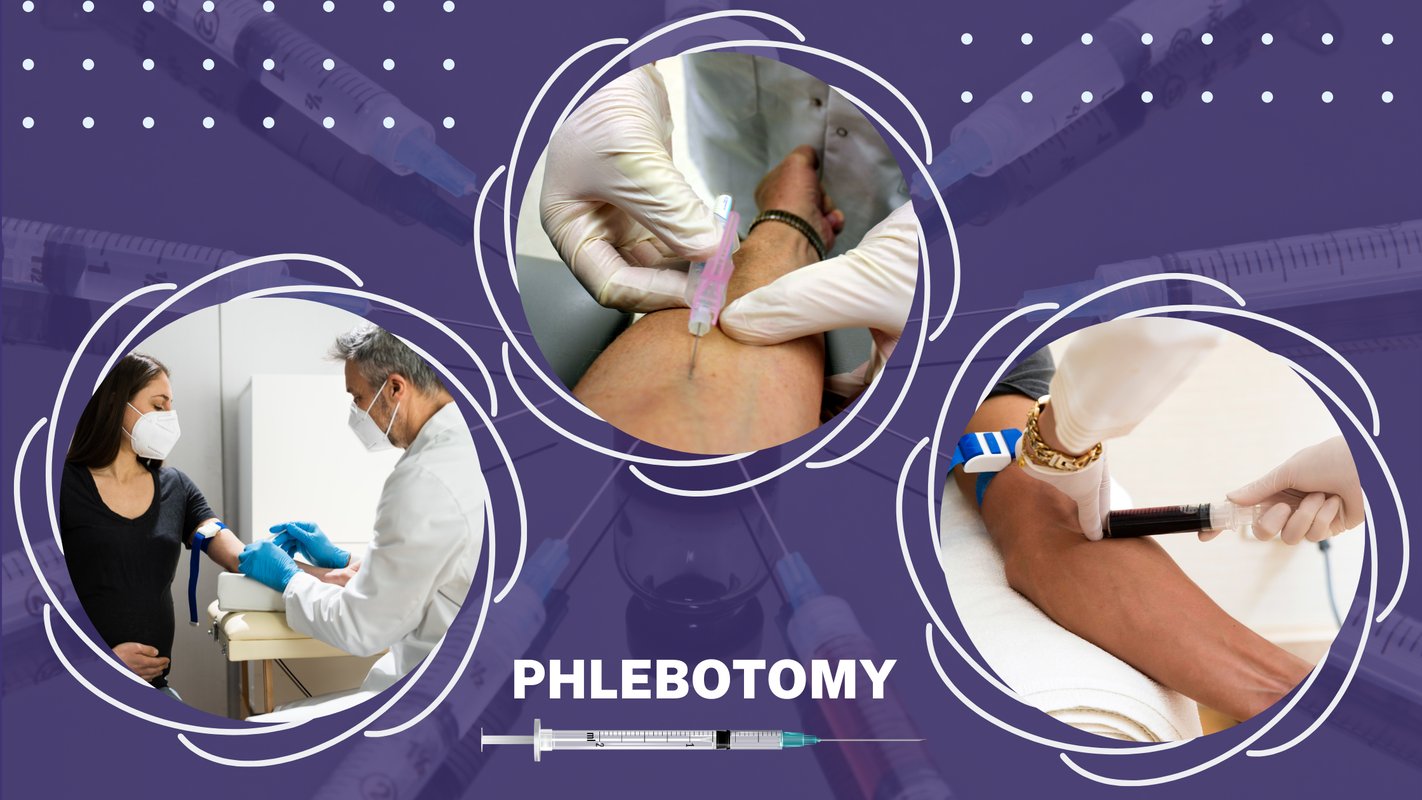How to Become a Phlebotomist in Arizona

If you're considering a career as a phlebotomist in Arizona, take the first step towards becoming certified. With your phlebotomy certification in hand, you'll unlock opportunities to secure fulfilling phlebotomy jobs nearby and earn a competitive phlebotomy salary.
Key Points
- A phlebotomist is a healthcare professional trained to draw blood for medical tests, transfusions, or donations.
- To become a phlebotomist in Arizona, you must complete an accredited training program and pass a national certification exam.
- Phlebotomy training programs in Arizona typically last between 4 to 8 weeks.
- In Arizona, the average phlebotomist salary is $44,160 per year.
How Do I Get a Job as a Phlebotomist?
Once you've earned your phlebotomy certification, the next step is securing a job as a phlebotomist at healthcare facilities in your area. Employers often look for candidates with both certification and some prior experience, so consider completing an internship or externship during your training program to enhance your qualifications.
1. Gain relevant experience: Completing an internship or externship during your training program can provide valuable hands-on experience in phlebotomy techniques and procedures. This experience not only strengthens your skills but also makes you more attractive to potential employers.
2. Update your resume: Highlight your phlebotomy certification prominently on your resume, along with any relevant experience, skills, and accomplishments. Tailor your resume to emphasize your ability to handle blood collection, maintain patient comfort, and follow safety protocols.
3. Network within the healthcare industry: Connect with professionals in the healthcare field through networking events, job fairs, and online platforms like LinkedIn. Building relationships with professionals already working in phlebotomy can lead to job opportunities and valuable insights into the industry.
4. Research job openings: Regularly check job boards, hospital websites, and healthcare staffing agencies for phlebotomy positions in your area. Pay attention to job requirements and application deadlines to ensure you submit your application on time.
5. Prepare for interviews: Practice answering common interview questions related to phlebotomy, such as how you handle difficult veins or ensure patient safety. Be prepared to discuss your training, certification, and any relevant experience in detail.
6. Apply for positions: Submit tailored resumes and cover letters for phlebotomy positions that match your qualifications and career goals. Highlight specific skills and experiences that demonstrate your ability to excel in the role.
7. Follow up after interviews: Send a thank-you email or note to interviewers after each interview to express your appreciation and reiterate your interest in the position. This demonstrates professionalism and keeps you top of mind during the hiring process.
Career Paths and Opportunities after Becoming a Phlebotomist
With your phlebotomy certification, a range of career paths and opportunities open up in various healthcare settings. You can explore diverse roles in hospitals, clinics, laboratories, and more specialized areas such as pediatric phlebotomy or donor center phlebotomy.
-
Hospital Settings: Hospitals often have high demand for phlebotomists to collect blood samples from patients for testing and analysis. You may work in emergency rooms, outpatient clinics, or specialized departments like oncology or cardiology.
-
Clinics and Physician Offices: Many medical clinics and physician offices employ phlebotomists to perform blood draws for routine tests and screenings. This setting offers regular hours and the opportunity to build relationships with patients.
-
Laboratory Settings: In laboratory settings, phlebotomists may work alongside medical laboratory technologists and technicians to ensure accurate specimen collection and handling. This role is crucial for maintaining the integrity of test results.
-
Specialized Areas: Phlebotomists can specialize in areas such as pediatric phlebotomy, where they focus on drawing blood from children, or donor center phlebotomy, where they collect blood donations from voluntary donors for blood banks and transfusion services.
-
Research Facilities: Some phlebotomists work in research facilities where blood samples are collected for scientific studies and clinical trials. This role may involve adherence to strict protocols and collaboration with researchers.
-
Mobile Phlebotomy Services: As a mobile phlebotomist, you may travel to patients' homes, nursing homes, or other healthcare facilities to perform blood draws. This provides flexibility and the opportunity to serve patients who may have difficulty accessing traditional healthcare settings.
-
Career Advancement: With experience and additional training, phlebotomists can advance to supervisory roles, such as phlebotomy team leader or manager. Continuing education and certification in specialized areas can also enhance career prospects.
Frequently Asked Questions
How much does a phlebotomist make in Arizona?
According to the Bureau of Labor Statistics (BLS), the average annual salary for phlebotomists in Arizona is approximately $44,160 as of May 2023.
How to get a phlebotomy license in Arizona?
To get a phlebotomy license in Arizona, you must first complete an accredited phlebotomy training program, which includes both classroom instruction and hands-on clinical practice. After completing the training, you need to pass a national certification exam from a recognized organization such as the National Phlebotomy Association or the American Society of Phlebotomy Technicians. Once you pass the exam, you will receive your certification, which is necessary for employment as a phlebotomist in Arizona. Make sure to check for any additional state-specific requirements or renewals that might be needed.
What is the shortest time to become a phlebotomist?
The shortest time to becoming a phlebotomist is approximately 4 weeks, depending on the program's intensity and scheduling.
How long is phlebotomy school in Arizona?
Phlebotomy training programs in Arizona generally last between 4 to 8 weeks. These programs cover essential skills such as venipuncture techniques, specimen handling, and medical terminology required for phlebotomy practice.
Final Thoughts
Becoming a phlebotomist in Arizona is an excellent career choice for individuals looking to enter the healthcare field quickly and meaningfully. With short training periods, accessible certification, and growing demand, phlebotomy offers a rewarding and stable career path.
If this article isn't quite hitting the mark for you, why not give these other articles a try:

Athena is Co-founder and CEO of Dreambound.





